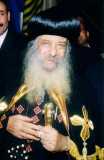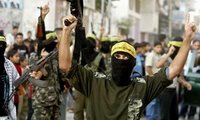This appeared in the Wall Street Journal today.
(Click on the title to see the article in the WSJ)
Benedict the Brave
The pope said things Muslims need to hear about faith and reason.
Tuesday, September 19, 2006 12:01 a.m. EDT
It's a familiar spectacle: furious demands for an apology, threats, riots, violence. Anything can trigger so-called Muslim fury: a novel by a British-Indian writer, newspaper cartoons in a small Nordic country or, this past week, a talk on theology by the head of the Roman Catholic Church.
In a lecture on "Faith and Reason" at the University of Regensburg in Germany, Benedict XVI cited one of the last emperors of Byzantium, Manuel II Paleologus. Stressing the 14th-century emperor's "startling brusqueness," the pope quoted him as saying: "Show me just what Mohammed brought that was new, and there you will find things only evil and inhuman, such as his command to spread by the sword the faith he preached."
Taken alone, these are strong words. However, the pope didn't endorse the comment that he twice emphasized was not his own. No matter. As with Salman Rushdie's "Satanic Verses," which millions of outraged Muslims didn't bother to read (including Ayatollah Khomeini, who put the bounty on the novelist's life), what Benedict XVI meant or even said isn't the issue. Once again, many Muslim leaders are inciting their faithful against perceived slights and trying to proscribe how free societies discuss one of the world's major religions.
Several Iraqi terrorist groups called for attacks on the Vatican. A cleric linked to Somalia's ruling Islamist movement urged Muslims to "hunt down" and kill the pope. In an apparently linked attack Sunday in Mogadishu, a nun was gunned down in a children's hospital. Pakistan's parliament unanimously adopted a resolution condemning the pontiff and demanding an apology.
Under pressure and no doubt to stop any further violence, the pope on Sunday did so. "I am deeply sorry for the reactions in some countries to a few passages of my address . . . which were considered offensive to the sensibility of Muslims," he told pilgrims at his Castelgandolfo summer residence. The quote doesn't "in any way express my personal thought. I hope this serves to appease hearts."
It was a gracious gesture on the pope's part, especially because his original argument deserves to be heard, not least by Muslims. The offending quotation was a small part in a chain of argument that led to his main thesis about the close relationship between reason and belief. Without the right balance between the two, the pontiff said, mankind is condemned to the "pathologies and life-threatening diseases associated with religion and reason"--in short, political and religious fanaticism.
In Christianity, God is inseparable from reason. "In the beginning was the Word," the pope quotes from the Gospel according to John. "God acts with logos. Logos means both reason and word," he explained. "The inner rapprochement between Biblical faith and Greek philosophical inquiry was an event of decisive importance not only from the standpoint of history of religions, but also from that of world history. . . . This convergence, with the subsequent addition of the Roman heritage, created Europe."
The question raised by the pope is whether this convergence has taken place in Islam as well. He quotes the Lebanese Catholic theologist Theodore Khoury, who said that "for Muslim teaching, God is absolutely transcendent, his will is not bound up with any of our categories." If this is true, can there be dialogue at all between Islam and the West? For the pope, the precondition for any meaningful interfaith discussions is a religion tempered by reason: "It is to this great logos, to this breadth of reason, that we invite our partners in the dialogue of cultures," he concluded.
This is not an invitation to the usual feel-good interfaith round-tables. It is a request for dialogue with one condition--that everyone at the table reject the irrationality of religiously motivated violence. The pope isn't condemning Islam; he is inviting it to join rather than reject the modern world.
By their reaction to the pope's speech, some Muslim leaders showed again that Islam has a problem with modernity that is going to have to be solved by a debate within Islam. The day Muslims condemn Islamic terror with the same vehemence they condemn those who criticize Islam, an attempt at dialogue--and at improving relations between the Western and Islamic worlds--can begin.

